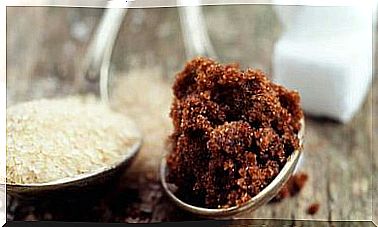Is The Plant-based Keto Diet Really A Healthy Option?
Following a food fad, such as the ketogenic diet, can have consequences if it is not done correctly. Discover its pros and cons.

Have you heard of the keto diet ? It is possible … In fact this diet became popular in 2018 and continued in 2019. But the question is, is it really healthy?
To put it simply, I don’t recommend the standard ketogenic diet. It is not simply because it is a low-carbohydrate diet, high in fat, limited in plant-based foods and rich in animal products, but because it can cause inflammation, digestive problems, and even the dreaded keto flu (nausea, vomiting and diarrhea ), especially the first days of the change.
So you might be wondering if a plant-based keto diet would be healthier. It is without a doubt a better option, as it includes many more plant-based foods. Still, there are certain aspects that are not very clear …
Questions and Answers About the Plant-Based Keto Diet
- More studies are missing that corroborate its benefits
In this type of diet, meat, butter and cheeses are eliminated, which is already a great achievement, in addition , more densely nutritious foods with higher fiber content are included that contribute to the health of the microflora.
Still, it will continue to bring you into a state of ketogenesis, that is, a state in which your body works in an environment with low blood glucose levels and begins to burn fat for energy. The truth is that we need more long-term studies to identify the effectiveness and potential health risks of the keto diet, within 5 or more years.
Until new results, no more conclusions can be drawn about its benefits and harmful effects, so we are waiting.
- It is effective, but it can also lead to glucose intolerance
Going on a keto diet will bring you benefits, it is true. You will surely lose weight, improve your energy, lower cholesterol and improve glucose levels. But, although everything seems positive, if we take a broader view, we discover that not everything is.
Although it is true that people who follow a keto diet see lower blood glucose levels, they also cause a certain glucose intolerance, which limits their ability to tolerate foods rich in carbohydrates such as fruits, tubers, legumes and whole grains.
And, because it is not a very sustainable lifestyle, the moment carbohydrate consumption increases – a banana, quinoa or French fries – it is more difficult for the muscles and liver to efficiently metabolize glucose to produce energy. , resulting in a rise in blood glucose or insulin. It is leading to insulin resistance, which could develop into a type 2 diabetes and other chronic conditions such as heart or kidney disease.
- Carbohydrates contribute to longevity
There are different opinions regarding carbohydrates. There are those who defend that they should be avoided but keep in mind that in the Blue Zones , areas or countries with the longest living population in the world, they do not follow a low-carbohydrate diet. In fact, long-lived populations with low rates of chronic diseases eat a diet rich in carbohydrates, low in fat and products of animal origin.
In a 2017 study published in the Lancet, researchers performed coronary calcification tests on more than 750 indigenous Tsimane from South America, in Bolivia. All the subjects were over 40 years old and ate a diet composed of 72% of the calories from carbohydrates, 14% from fat, and 14% from protein (mostly from rice, corn, cassava, and bananas).
The results were shocking since 97% of the people studied did not show signs of arteriosclerosis (accumulation of fat and cholesterol in the arterial walls). In addition, they also had extremely low total cholesterol and LDL (bad cholesterol) levels.
Although a single study cannot be conclusive, we do need to pay attention to it. What is certain is that it is consistent with many populations around the world that feed on ingredients of plant origin and have low rates of heart disease, such as the Bantus of Central and South America, the natives of New Guinea, some populations of Ecuador and Native Americans of Mexico, as well as the aforementioned blue zones.
If you decide to switch to the keto diet …
You can follow a diet based on whole foods of plant origin without having to go “keto trend” and still reap the benefits of eating foods rich in carbohydrates while reducing the risk of chronic diseases, and consequently, premature death.
But in any case, if you decide to try the keto diet, then the plant-based version is the best way to go. You’ll continue to eat leafy greens and non-starchy vegetables — such as lettuce, spinach, arugula, cauliflower, asparagus, cabbage, and broccoli — and olives, avocados, vegetable oils, nuts, and seeds.
Whether or not this trend is maintained, it is clear that increasing the consumption of vegetables in your day to day will not be a wrong option.









